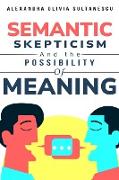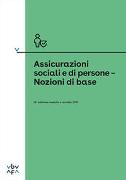- Start
- Semantic Skepticism and the Possibility of Meaning
Semantic Skepticism and the Possibility of Meaning
Angebote / Angebote:
We use linguistic expressions to communicate: to describe the world, to make jokes, to complain, to make confessions. We should be astonished that we can do all these things through the use of what seem, from an outside standpoint, to be just marks and sounds. Somehow, these marks and sounds are meaningful to us. This dissertation is an inquiry into what makes this possible. Philosophical inquiries are often pursued in response to puzzling sceptics, who confront us with challenges that might initially seem easy to meet but turn out to be deeply perplexing. We illuminate the nature of knowledge by reflecting on the challenge posed by the epistemic sceptic, who claims that knowledge is not something that creatures like us can attain, and the nature of morality by reflecting on the challenge posed by the moral sceptic, who claims that morality is not something by which we are moved to act. In this dissertation, I try to shed light on the nature of meaningful expressions by considering the challenge of a semantic sceptic, who claims that using expressions meaningfully is not something that we are capable of doing. Our impressions to the contrary, this sceptic thinks, may play a useful role, however, they are illusory.
Folgt in ca. 15 Arbeitstagen




